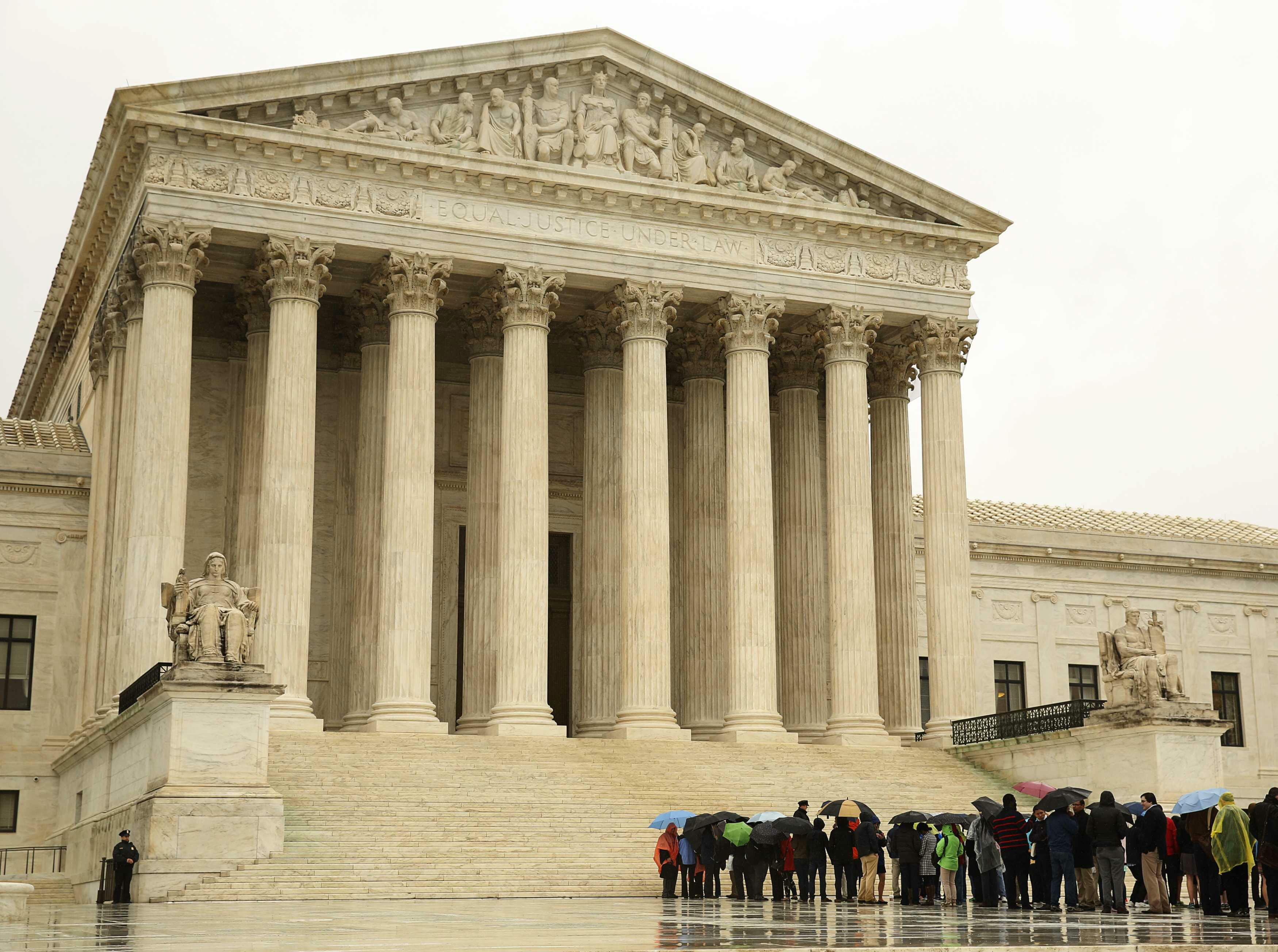
A judge shouldn't be allowed to vote in a case involving a capital sentence when he was formerly the prosecutor who sought the death penalty in the same case. That sounds obvious, and the Supreme Court said so on Thursday.
But three justices dissented, suggesting that the answer might not have been obvious after all. The dissents show how deeply divided the court really is over the death penalty – and how far the conservative justices are prepared to go in its defence. The facts of the case go back to 1984, when Terence Williams, who had just turned 18, participated in the beating and murder of 56-year-old Amos Norwood in Philadelphia. The prosecutor in Williams’s case wanted to seek the death penalty, and asked approval from the Philadelphia district attorney, Ronald Castille. Castille approved in 1986, writing on the letter of request, “Approved to proceed on the death penalty.”
At the sentencing phase of the trial, the prosecutor argued that Williams had murdered Norwood for no better reason than that the stranger had offered him a ride. The randomness of the crime was used as evidence that Williams would be dangerous if he was ever allowed to go free, and the jury chose the death sentence.
In 2012, Williams filed a petition in Pennsylvania court offering new evidence. His co-defendant now was willing to testify that he had told prosecutors that Williams was in a physical relationship with Norwood, his victim. If that was true, then the killing might not have been random, as prosecutors had claimed.
A Pennsylvania trial court stayed the execution. Prosecutors asked the state supreme court to lift the stay for a procedural reason, saying defense lawyers hadn't filed petitions on time as defined by Pennsylvania law.
At the time, the chief justice of the Pennsylvania Supreme Court was none other than Ronald Castille, who had approved the death penalty request as district attorney almost 30 years before. Williams’s lawyers asked him to recuse himself from the appeal. Castille refused.
Justice Anthony Kennedy wrote Thursday's Supreme Court opinion, holding that Castille’s participation deprived Williams of due process of law. The logic was simple: for Castille to act as prosecutor and judge in the same case violated a basic principle of fairness, namely that “no man can be a judge in his own case.”
Having made a “critical” decision on the case, Kennedy wrote, Castille might be “psychologically wedded” to the death penalty and therefore might not be open-minded about the appeal.
The two dissents are noteworthy. The first, by Chief Justice John Roberts, was joined by Justice Samuel Alito. In it, Roberts disparaged Kennedy’s opinion as resting “on proverb rather than precedent.”
Roberts then argued that under existing precedent, recusal is only required when a judge has previously decided precisely the same question. He claimed that the issue in Williams’s appeal was different than the ones raised in seeking the death penalty in the first place; the only question was whether Williams’s petition should be rejected because it wasn't filed on time.
Roberts emphasized that judges’ recusal decisions should be presumed legitimate. He cares about the institution of the courts, and so it’s perhaps understandable that he was eager to defend the Pennsylvania judge.
But the opinion is otherwise unconvincing. In death penalty appeals, technical issues like timeliness are often proxies for the underlying issue of whether the death penalty should have been applied. If prosecutors were told that Williams and his victim were lovers, and yet told the jury that the attack was random, that would impugn the honesty of the district attorney’s office when Castille was district attorney.
What’s really going on is that Roberts and Alito don’t want capital sentences blocked on what they consider technicalities.
Justice Clarence Thomas was willing to say so more explicitly. His separate dissent argued that state post-conviction proceedings, common in death penalty cases, actually should be held to a lower due-process standard than trials for guilt or innocence. “The specter of bias alone in a judicial proceeding is not a deprivation of due process,” Thomas wrote.
Thomas has the honesty to say what he thinks, namely that the Constitutional right to due process doesn’t have full weight once a defendant has been convicted. He’s wrong, and thank goodness the other justices don’t agree. But his opinion sheds light on his own death penalty intransigence.
Hard cases make bad law, according to the adage. The Williams case isn’t hard. But the death penalty makes it so. And the court’s conservatives seem prepared to make bad law to emphasize their desire to see capital defendants executed. - Bloomberg View